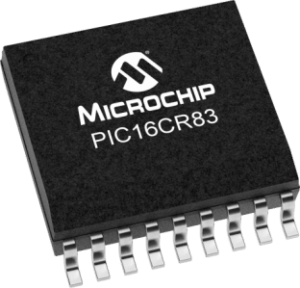 Copy Microcontroller PIC16CR83 Heximal
Copy Microcontroller PIC16CR83 Heximal
Copy Microcontroller PIC16CR83 Heximal
A variety of frequency ranges and packaging options are available in the process of Copy Microcontroller PIC16CR83 Heximal. Depending on application and production requirements the proper device option can be selected using the information in this section. When placing orders, please use the “PIC16F8X Product Identification System” at the back of this data sheet to specify the correct part number.
There are four device “types” as indicated in the device number.
1. F, as in PIC16F84. These devices have Flash program memory and operate over the standard voltage range.
2. LF, as in PIC16LF84. These devices have Flash;
LCR, as in PIC16LCR84. These devices have ROM program memory and operate over an extended voltage range.
When discussing memory maps and other architectural features, the use of F and CR also implies the LF and LCR versions.
These devices are offered in the lower cost plastic package, even though the device can be erased and reprogrammed. This allows the same device to be used for prototype development and pilot programs as well as production.
A further advantage of the electrically-erasable Flash version is that it can be erased and reprogrammed in-circuit, or by device programmers, such as Microchip’s PICSTART® Plus or PRO MATE® II programmers.
Microchip offers a QTP Programming Service for factory production orders. This service is made available for users who choose not to program a medium to high quantity of units and whose code patterns have stabilized. The devices have all Flash locations and configuration options already programmed by the factory. Certain code and prototype verification procedures do apply before production shipments are available from Copy Microcontroller PIC16CR83 Heximal.
For information on submitting a QTP code, please contact your Microchip Regional Sales Office.
Microchip offers the unique programming service where a few user-defined locations in each device are programmed with different serial numbers. The serial numbers may be random, pseudo-random or sequential.
Serial programming allows each device to have a unique number which can serve as an entry-code, password or ID number.device where the program memory is a ROM. These Some of Microchip’s devices have a corresponding devices give a cost savings over Microchip’s traditional user programmed devices (EPROM, EEPROM). ROM devices (PIC16CR8X) do not allow serialization information in the program memory space. The user may program this information into the Data EEPROM.
